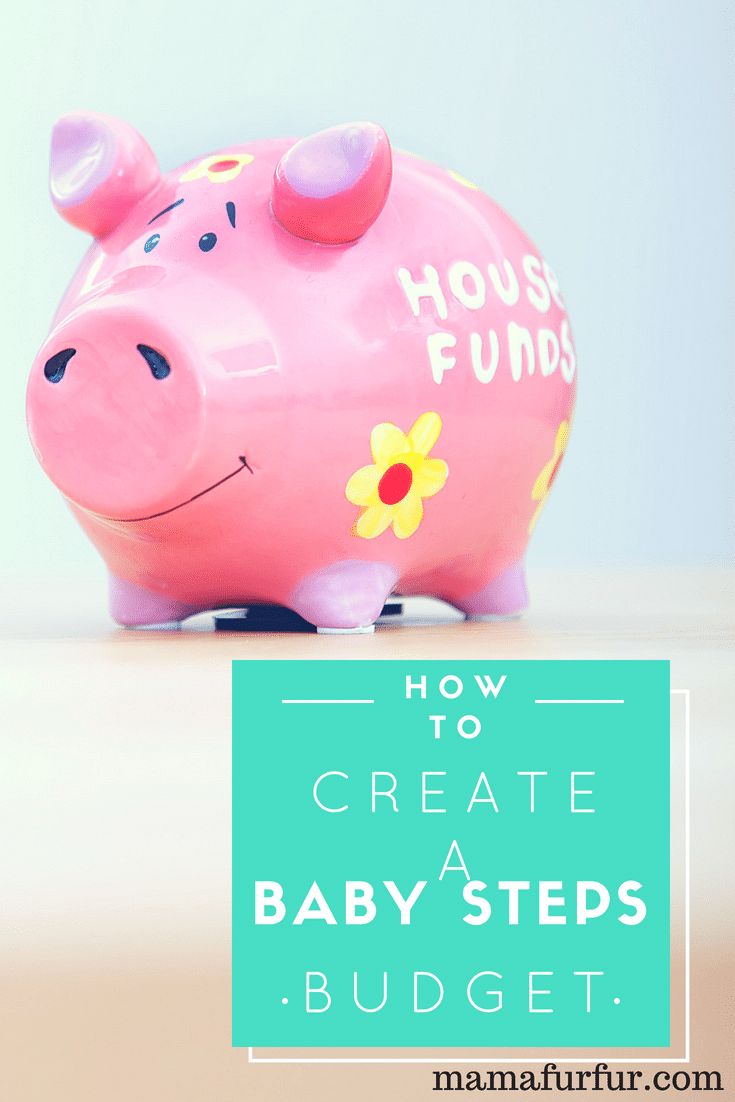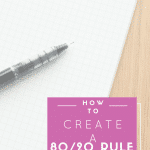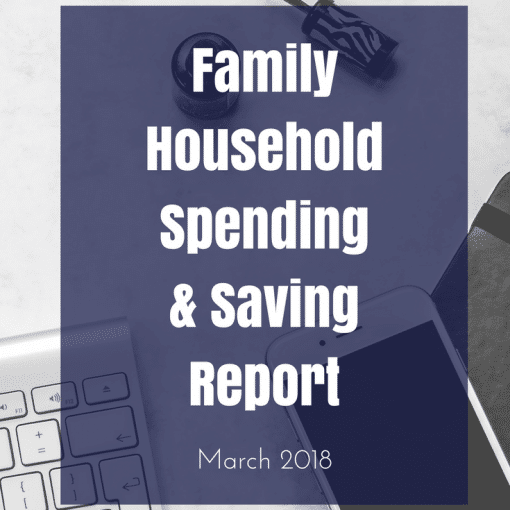A question I’m often asked is:
“How do you create a budget that works?”/
Here is the secret though – no one budget style suits everyone.
In fact, your budget must be completely aligned to your financial and life goals and that is very specific and unique to you and your lifestyle.
However, I wanted to share with you a series of posts that will be dedicated to creating a budget and a few suggestions that you could use for your own.
First of all – Be sure on what your financial ultimate goal is.
Is it to be mortgage free in 5 years?
Is it to be completely financial free (living off the income of your properties/investments etc) within 20 years?
Just want to retire before the age of 65?
Whatever your goal is – Let that be the starting point for any budget you create.
 // What is the Baby Steps Budget all about?
// What is the Baby Steps Budget all about?
The Baby Steps budget was designed and preached by a very popular Money & Finance writer called Dave Ramsey.
The basis of the budgeting strategy is that you “can’t each an elephant in one go” so take small little steps moving upwards towards a journey to financial freedom and security.
These 7 Steps are designed for any budget but allow you to slowly build up your wealth and efforts towards the ultimate money security on autopilot.
His budget structure also includes the three main pillars of any budget – Emergency funds, Investing/paying your future self and Giving back to others with your wealth.
Fancy giving this budget style a go?
Here are the breakdown of those steps for you to implement in your own household.
Personally I am a great fan of this style of budgeting, but I like to budget with all the steps take in one go if possible rather than wait to start the process to financial freedom.
// Baby Step 1 – Save at least £1000 (£500 if less than £15k a year salary) Emergency Fund
Dave Ramsey believes that emergencies and “life happening” are the very events in life we cannot avoid, that will catch us off guard but the very events that put us into debt usually.
As a starting point – once you have worked out exactly how much money you have coming into your home and your essential bills out to live, the next step is to save towards that emergency fund.
Dave recommends a minimum of £1000 if you are living with a salary over £15k+ a year and then less than that if you are £15k or below.
That £1000 is to cover you when the car breaks down and you need to still get to work; when the pet gets ill and needs medical care; when your fridge breaks down etc etc.
So to start with create a banking account dedicated to this purpose only – For emergencies that can’t wait until the next paycheque.
No more putting items on credit cards with high interest rates as you have set aside the money to prepare for such a situation.
Make sure to top it back up whenever you use it of course too!
Here is my video where I break down the Baby Steps clearly for you ahead
// Baby Step 2 – Pay off any credit card/student loans with the Snowball method
I’ve taken about debt management before on my blog, and you can find me describe the Snowball method of debt payments on this video below:
Once you have your emergency fund, you can then move on to tackle debt that is outstanding (outside of your home).
Make sure you are meeting the minimum payment on every single debt you have, then use the remaining outstanding money free each month in your budget to attack the smallest debt you have first.
Then once that debt is paid off – enjoy the rush of knowing you are creating a debt free life – and use the exact same amount of money overall for your debts to attack the next smallest debt.
And so on and so on.
Never lower the amount of money you are throwing at debt as a whole, but simply move it onto the next smallest debt until they are all gone.
Got that debt sorted? Now is time for the next step.
// Baby Step 3 – Save 3 to 6 months of Living Expenses
So you have your Emergency fund ready.
You have paid off all your debt outside of your home and mortgage.
Now it is time for Savings should you sadly lose your job and need time to find another one.
It’s time to aim for 3 to 6 months’ Living Expenses (all your essential bills plus food/petrol) in an account as your safety blanket for when the world could change suddenly.
Unemployment can hit any of us suddenly in the UK and USA in particular with the current economy, and it is vital that you protect your home and self should that happen.
By aiming for at least 3 months’ of expenses, you can give yourself the peace of mind that you will not lose your home should the worst happen or illness strike.
// Baby Step 4 – Invest 15% in your future
The POWER of Compound Interest and making your money create more money for you can never be underestimated!
If you don’t already set some of your money aside each month to allow it to generate more money for your future – you are missing out on the greatest money trick since the world began.
Dave recommends setting aside 15% at least towards your future via a Pension contribution (taken straight from your PRE-TAX wage where possible for minimum impact to your own pocket) or by placing 15% into your own private investment accounts.
In the UK, the government have announced plans to set the minimum Pension payment to 4% if you work for an employee, although you can still choose to opt out, but the obvious benefit is the more you take from your current pay cheque – the bigger your future ongoing pay cheque will be once you retire or even allow you to retire early.
With 15% saved towards your retirement, you could easily be looking at retiring some 20-25 years after you first of all start saving towards it.
Unsure of how to start investing? Check out my post here.
Increase that percentage, and the time taken for you to reach your financial freedom ultimate goal (the exact amount that keeps generating enough interest for you to live off indefinitely) will continue to drop.
Even better – if you can REDUCE your living expenses as well as save as much as you can without hurting your current life – you will get there even quicker!
// Baby Step 5 – Start saving for your children’s future
You have an Emergency account.
You have your debts paid off outside of your mortgage.
You have 3 to 6 months’ expenses filed away.
You are autopilot saving 15% minimum into your pension or investments building incomes in your future whilst you sleep.
Now it is time to sort out those kids!
Dave recommends if you have all these steps completed and working beautifully, then you are ready now to save for your children’s future.
Start by saving small amounts each month for their university and education if you can.
In Scotland, we are very lucky currently that higher education is free for your first degree – but in England and other parts of the UK and the world education comes with a price tag.
By saving for your children’s future education, you will take away the crippling student loan debts that could easily lead them into a path of debt similar to one perhaps you were on at the start of your adult life too.
Give them the head start that you wished you had.

// Baby Step 6 – Pay off your home early.
When you truly can live each month with as little expenses as possible – that is when you are truly free from the pressures of having to exchange your time for a wage.
Part of that has to be removing all possible debt, and now that includes your home so that you always have a roof over your head.
Dave advises not tackling paying off your home until you have the previous steps locked down and working away each month due to the fact you need to be in a solid position for all your money before you tackle potentially your largest debt of all.
Even with a small over payment each month, you will be eating away at the capital due and reducing our interest paid overall.
For example, if you were to pay 10% extra a month on your mortgage payment – you could potentially reduce the term down by 15-20%.
On a 25 year mortgage that could mean dropping it down to 21-22 years total instead by making that simple small over payment consistently.
Time to do the maths and see how much interest and time you could save with that simple trick in your budget too.
// Baby Step 7 – Build Wealth and Give back
When you have all the above boxes ticked – it is time to now let your money grow.
But Dave encourages everyone following his budget strategy to use that wealth for good as well as self worth.
Aiming to give back each month that you have all these boxes ticked means that you can finally improve the quality of the world around you now you have used your money to improve your own life first.
Perhaps you could give a regular donation to a local church or group?
Perhaps you could give a surprise gift to a family member in need?
This is your opportunity to really make a difference in the best way you know how each month
// My opinion and thoughts on the Baby Step Budget
The Baby Steps budget is a great starting point for any one looking to make the most out of their money, applying as many great tricks and strategies as you can.
I particularly strongly agree with paying off debt and aiming for 15% minimum investing/future building for all budgets even though that can be hard for some but a great target to aim for.
Personally I think the best way would be to use this great advice in each step to do as many as you can at once – but that is easier said than done for most families.
// Looking for your ideal budget?
Why not check out the rest of my budget series posts here to pick one that suits your family best?














One thought on “How to create a Baby Steps Budget”
So glad I bookmarked this. Reading back over it this morning I am so grateful to have made it to BS3 just as COVID-19 struck. Husband and I are both still working through so no change to our income but having no debt other than our mortgage to repay has given us huge peace of mind. Emergency Fund feels a bit daunting but we are now throwing every spare penny we have at it.